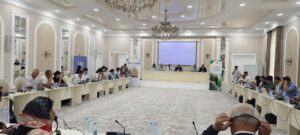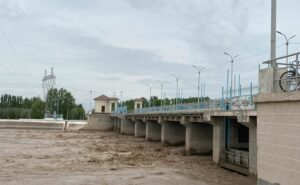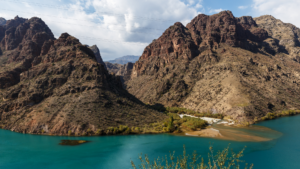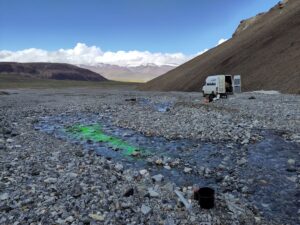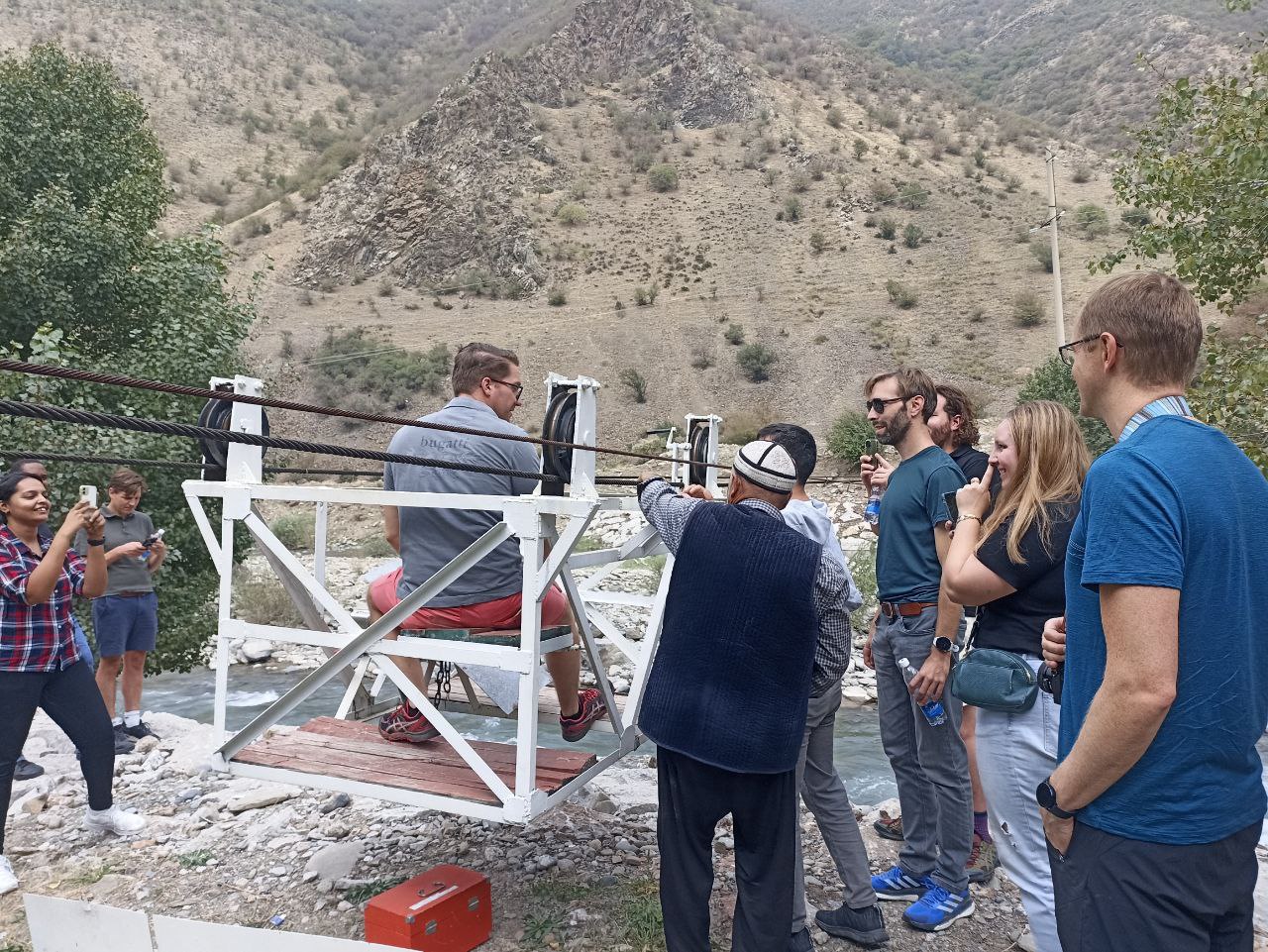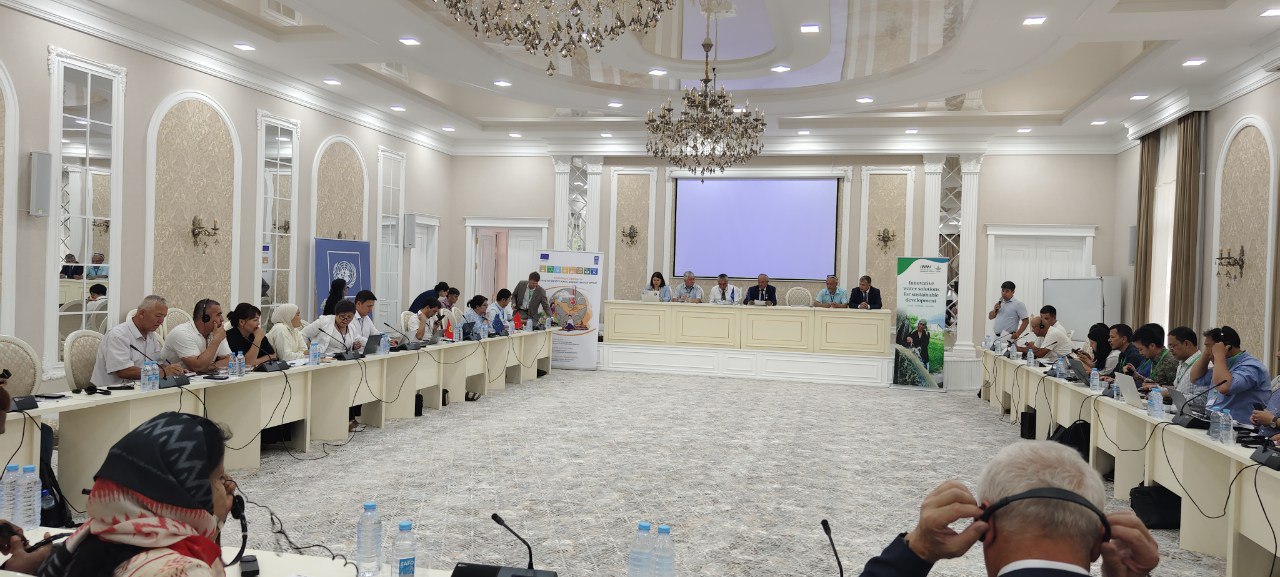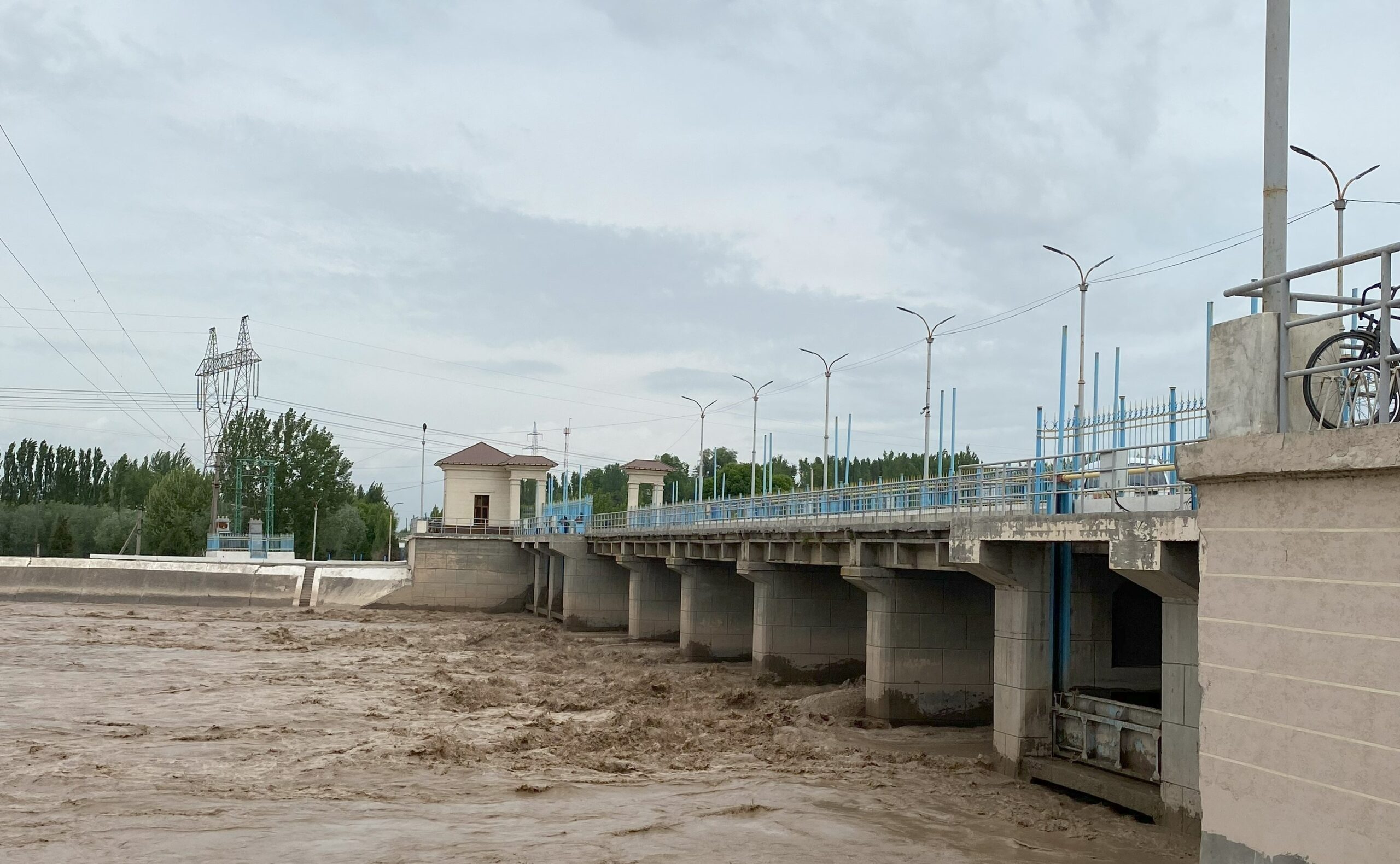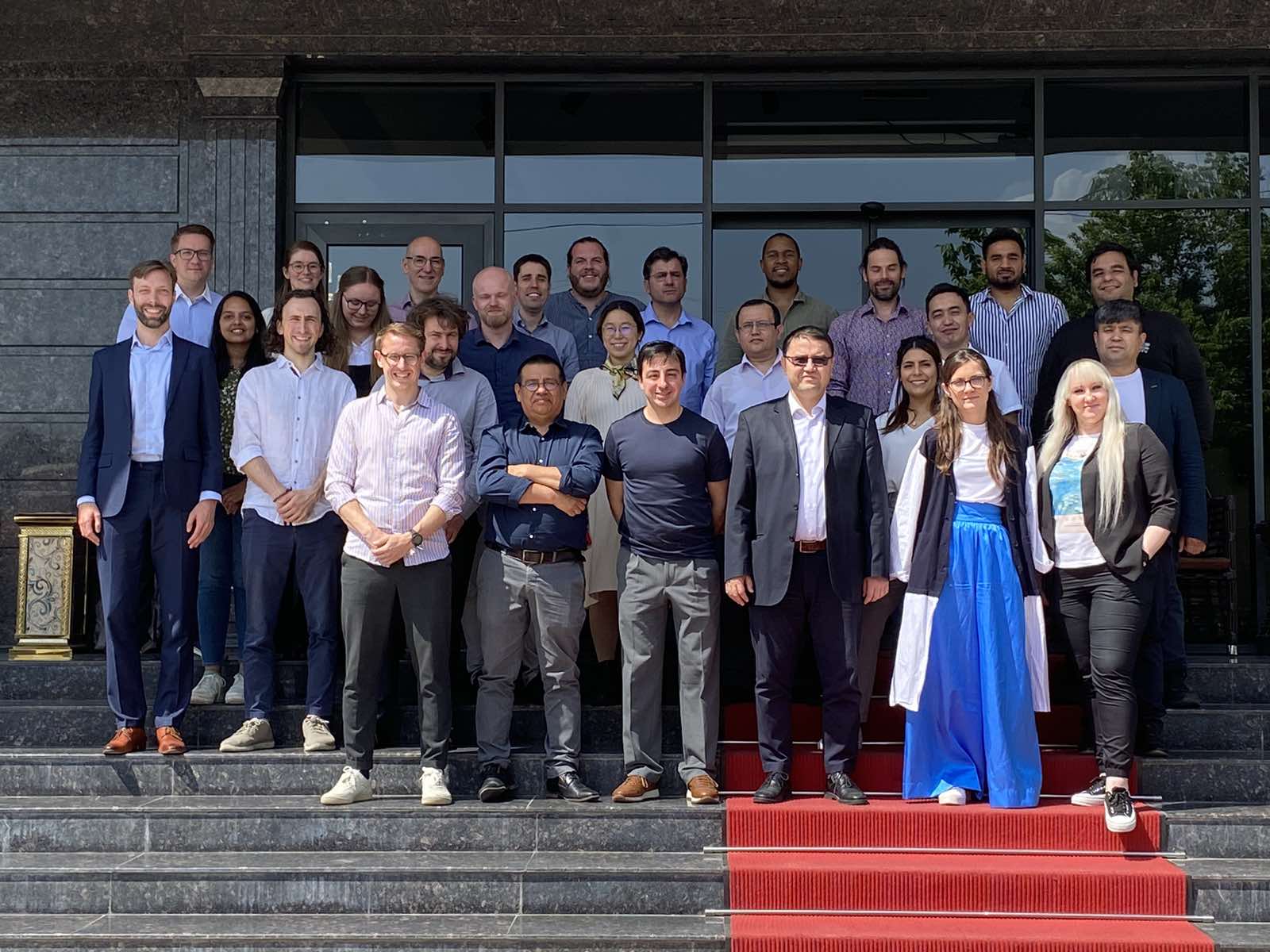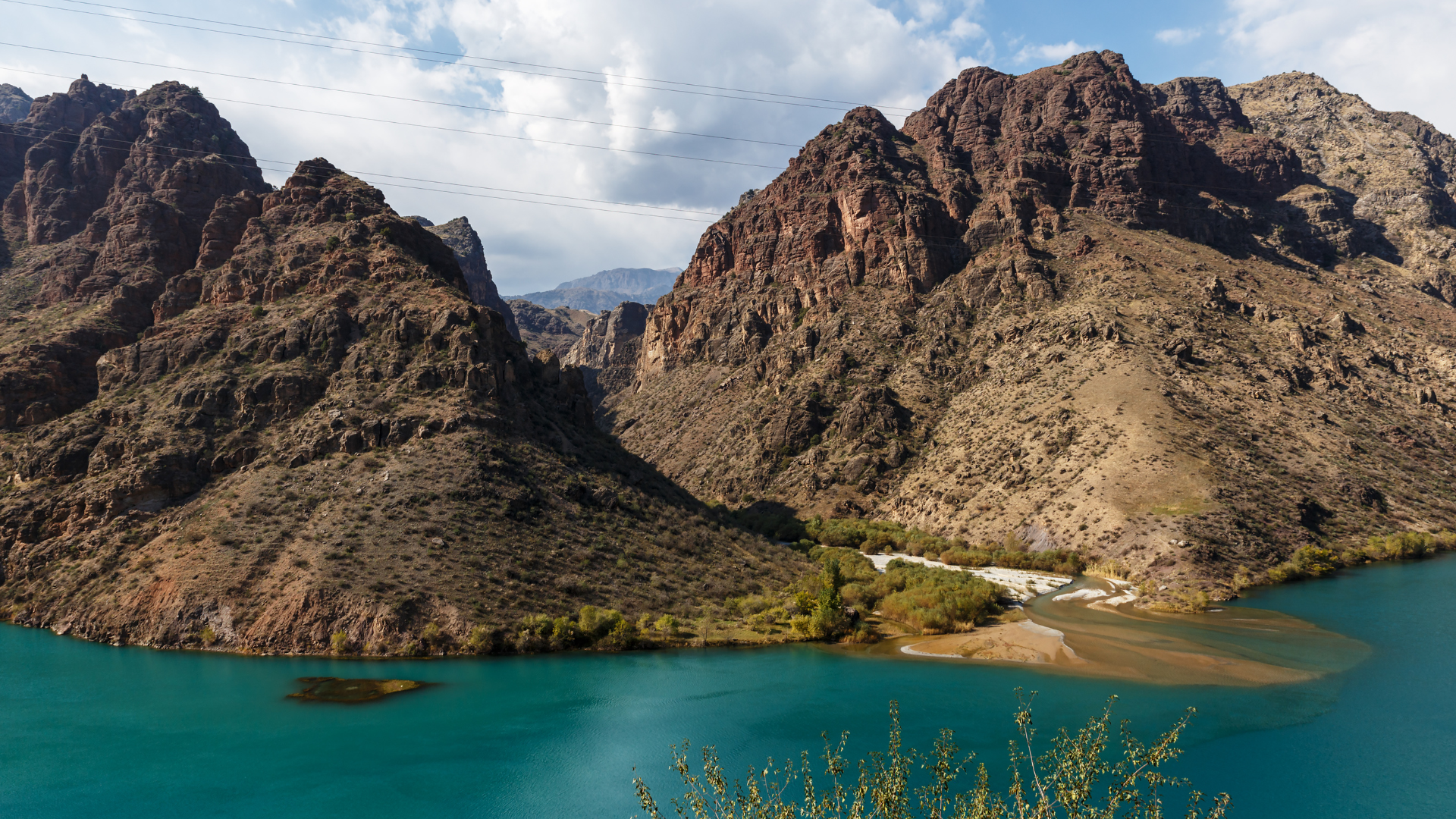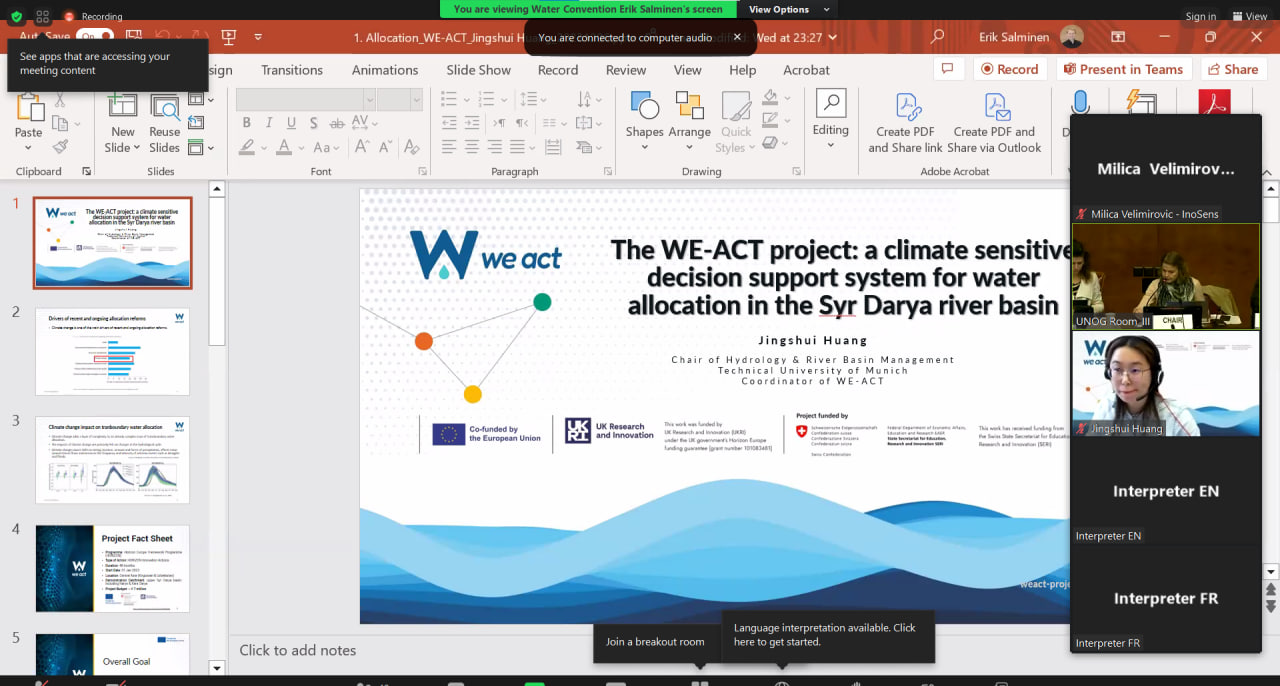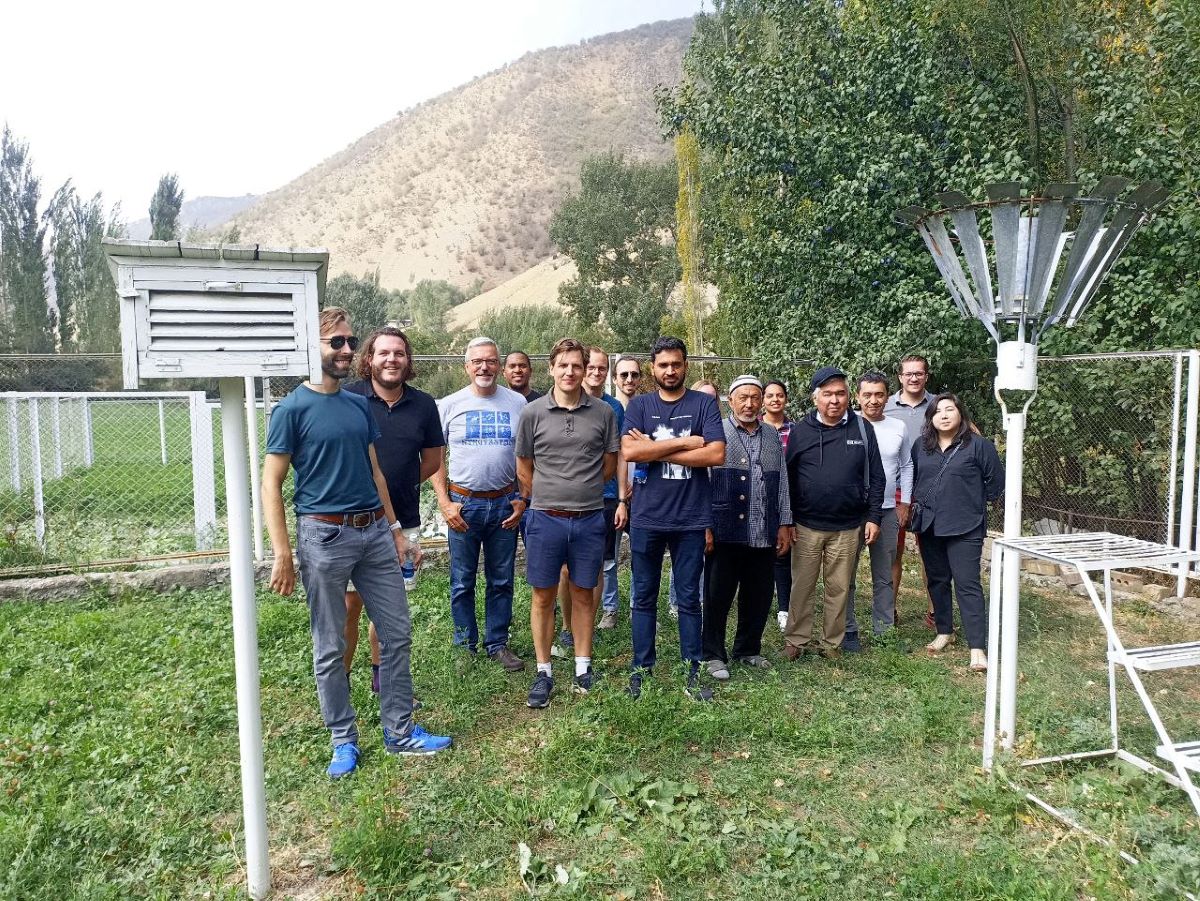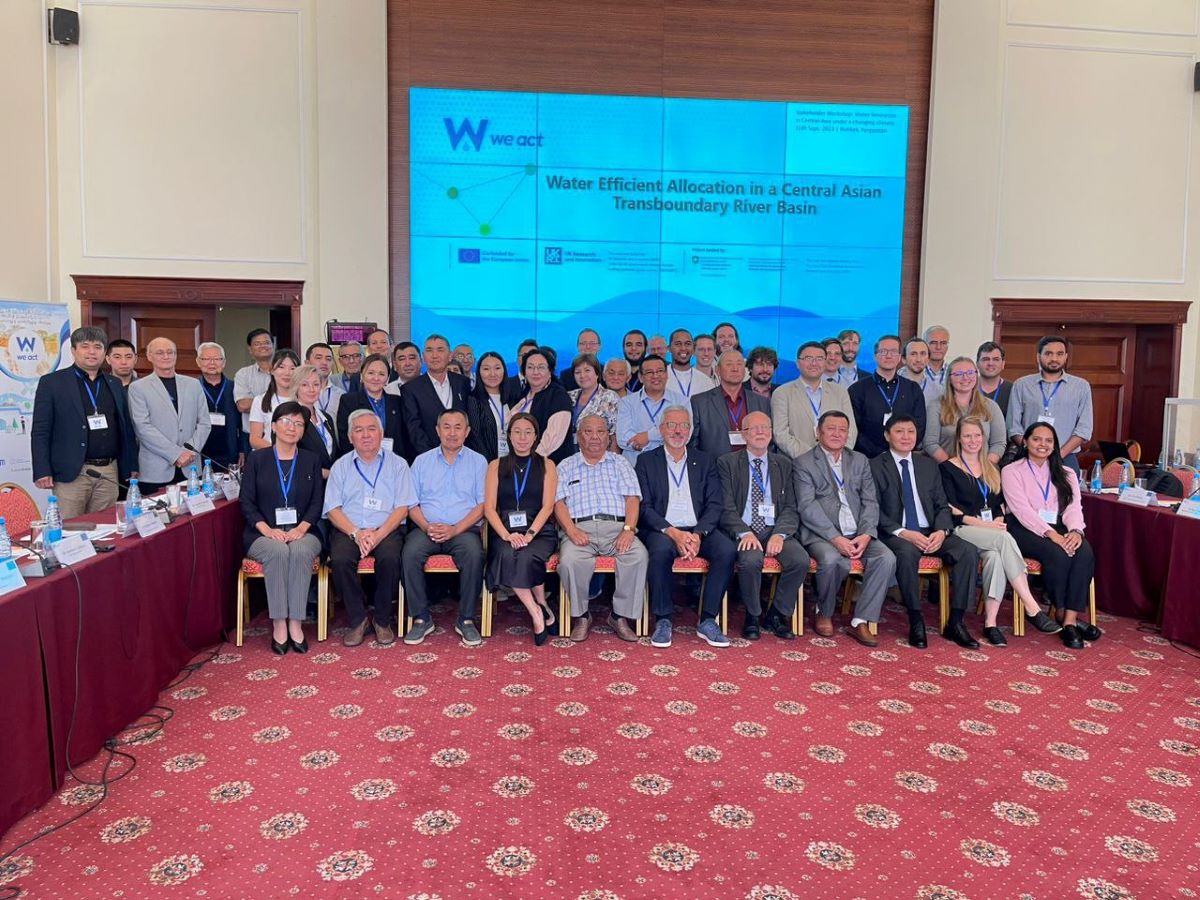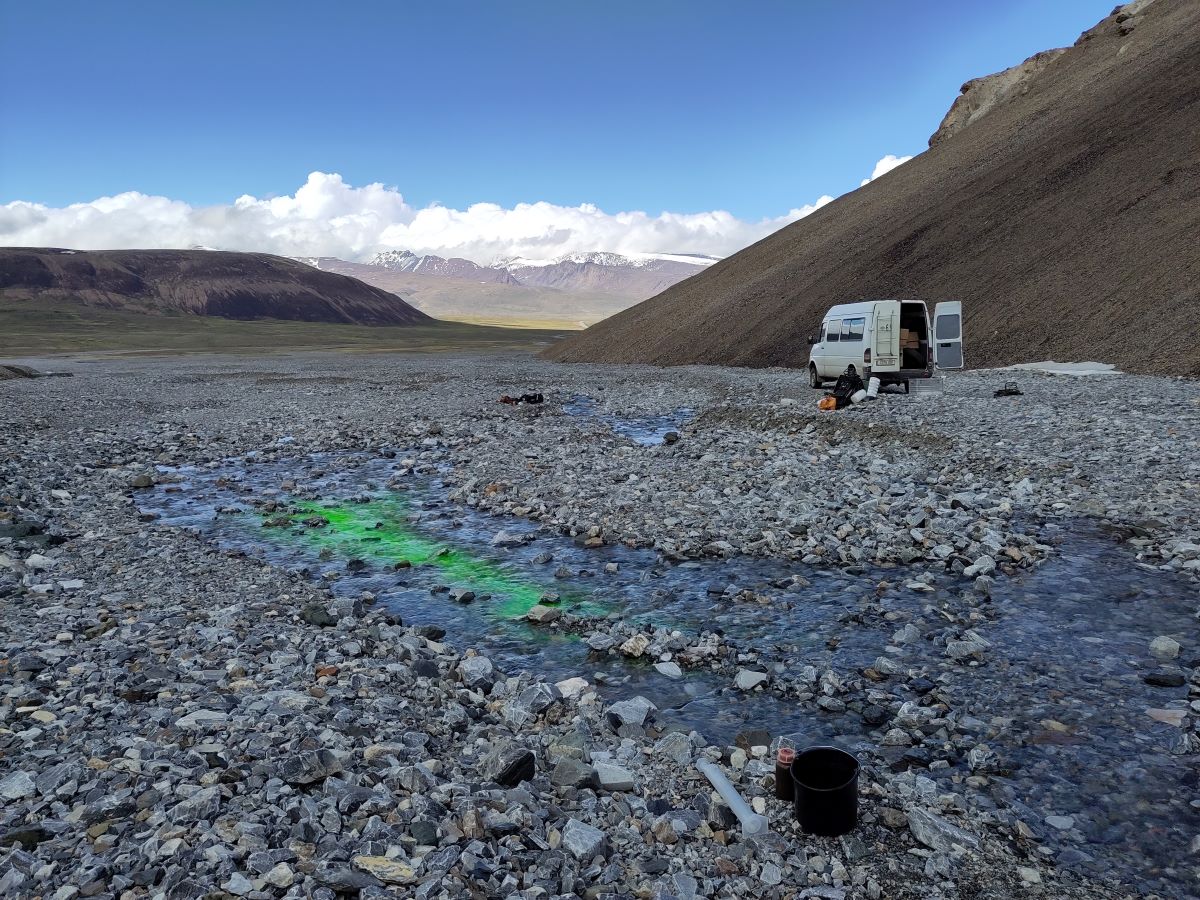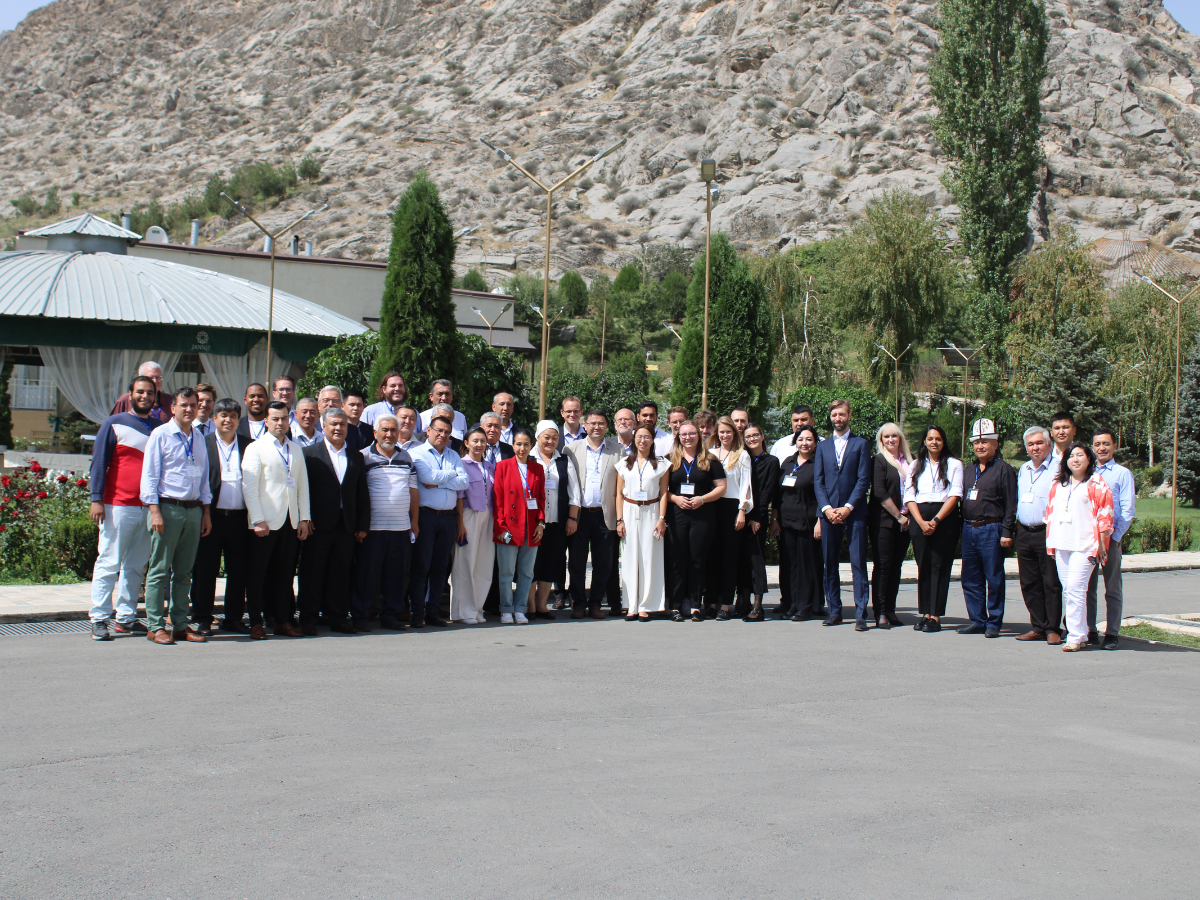Newsroom
From insights to action, the path to climate-smart water allocation and management value starts here.
The Highlights
laTEST NEWS
In this blog, we explore how the WE-ACT project is transforming water management in Central Asia. Discover how the project is uniting stakeholders from across borders, promoting dialogue, and aligning with European values of regional collaboration. Learn about the key activities and achievements that are paving the way for a more sustainable approach to managing the Syr Darya, Naryn, and Karadarya rivers amidst climate change.
Explore insights from IWMI's workshop on transboundary water cooperation in Central Asia, held on June 27, 2024, at Hotel Asia in Fergana, Uzbekistan. Topics include climate resilience, gender equity, and technological solutions for sustainable water management.
During the WE-ACT team's field trip to Uzbekistan's Fergana Valley, the team explored the area's rich cultural heritage and natural beauty, gaining invaluable insights into the local water management systems. The region has two important hydrological monuments the Andijan Dam and Reservoir, which are vital for irrigation and water supply. The team observed both traditional and modern irrigation techniques employed by local farmers. This experience highlighted the region's pressing challenges in water allocation and underscored the importance of sustainable water management practices, which are essential for balancing development with environmental preservation.
The WE-ACT General Assembly, held in Tashkent, Uzbekistan from April 23rd to 24th, 2024. The event focused on advancing water management in Central Asia through keynote speeches, collaborative sessions, and innovative demonstrations. Notable moments include the introduction of serious games for interactive learning and decision making, and a visit from BWO SyrDarya and SIC ICWC, emphasizing the importance of end-user engagement. Overall, the assembly exemplifies collective efforts towards sustainable water allocation in the region.
The WE-ACT webinar, held on February 9, 2024, in alignment with the International Day of Women in Science, illuminated the indispensable role of women in the water sector. Esteemed professionals from science, policy, and industry converged to discuss challenges and innovative solutions, emphasizing the need for gender inclusivity. From exploring the current status of women in water to addressing challenges faced by women in the field and charting a way forward for empowerment, the webinar fostered a dynamic dialogue, urging participants to contribute to a more inclusive and sustainable water sector through collective action.
The Summary Handbook on Water Allocation in a Transboundary Context incorporates information from the Handbook on Water Allocation, and it includes the WE-ACT project as a significant component. The WE-ACT project is a notable inclusion, contributing to the broader context of transboundary water allocation practices outlined in the publication. The handbook serves as a practical resource for policymakers, offering key elements, frameworks, and case studies to guide decision-making in the complex landscape of transboundary water allocation.
Explore the global impact of WE-ACT, spotlighted at the recent Convention on Transboundary Watercourses. Recognized by UNECE, WE-ACT is featured in the forthcoming UNECE handbook, exemplifying effective solutions at the intersection of water, food, energy, and ecosystems.
On September 16th, our partners embarked on an illuminating field trip, delving into the heart of water management. Exploring irrigation canals and stations, they gained firsthand insights into the intricate systems that sustain the landscape. A visual diary capturing this journey unfolds, revealing the synergy between theory and practice, as our collaborative efforts translate into tangible, transformative experiences on the ground.
From the 11th to the 15th of September, the WE-ACT project, co-funded by European Union, organized a series of significant events, bringing together experts, stakeholders, and community leaders devoted to addressing Central Asia's severe water concerns.
Explore UNIFR's impactful fieldwork in Central Asia during the summer of 2023, where researchers, students, and partners collaborated on a multi-faceted project. From overcoming challenges in automated weather station data transmission to hands-on experiences in the high-mountain landscapes of Kyrgyzstan, the story unveils the journey of installing cutting-edge technology for sustainable development and climate change adaptation in the Naryn River catchment.
We-Act Project Hosted a Stakeholder Consultation Workshop on Efficient Water Resource Allocation in the Syrdarya River Basin
IWMI Central Asia collaborated with key stakeholders in the energy, ecology, environment, and water sectors in Naryn City to drive forward one of the key tasks in the WE-ACT project.
Subscribe to our newsletter
Subscribe to our newsletter and stay up-to-date with the latest news and updates about our solutions and services, along with access to exclusive events, all delivered directly to your inbox. Don't miss out, be the first to know.

